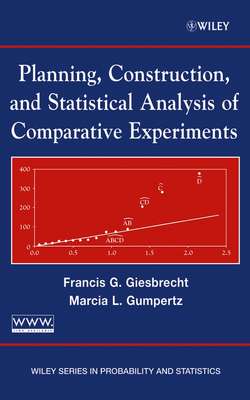Описание книги
A valuable guide to conducting experiments and analyzing data across a wide range of applications Experimental design is an important component of the scientific method. This book provides guidance on planning efficient investigations. It compiles designs for a wide range of experimental situations not previously found in accessible form. Focusing on applications in the physical, engineering, biological, and social sciences, Planning, Construction, and Statistical Analysis of Comparative Experiments is a valuable guide to designing experiments and correctly analyzing and interpreting the results. The authors draw on their years of experience in the classroom and as statistical consultants to research programs on campus, in government, and in industry. The object is always to strike the right balance between mathematical necessities and practical constraints. Serving both as a textbook for students of intermediate statistics and a hands-on reference for active researchers, the text includes: A wide range of applications, including agricultural sciences, animal and biomedical sciences, and industrial engineering studies General formulas for estimation and hypothesis testing, presented in a unified and simplified manner Guidelines for evaluating the power and efficiency of designs that are not perfectly balanced New developments in the design of fractional factorials with non-prime numbers of levels in mixed-level fractional factorials Detailed coverage on the construction of plans and the relationship among categories of designs Thorough coverage of balanced, lattice, cyclic, and alpha designs Strategies for sequences of fractional factorials Data sets and SAS® code on a companion web site An ideal handbook for the investigator planning a research program, the text comes complete with detailed plans of experiments and alternative approaches for added flexibility.
